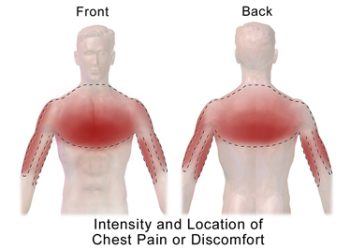Outlook for Heart Failure
The outlook for heart failure has improved significantly in recent decades due to advances in medication, diagnostics, surgical procedures, and patient education. While heart failure remains a serious and chronic condition, many people are now able to live long, fulfilling lives with careful management. The outlook for heart failure varies depending on numerous factors, including the cause of the condition, how early it is diagnosed, the patient’s response to treatment, and the presence of other health conditions.
For patients with mild or well-managed heart failure—particularly those with heart failure with preserved ejection fraction (HFpEF)—the prognosis can be quite good. With consistent lifestyle changes, adherence to medications, and regular follow-ups, many people maintain stable heart function for years. These patients often live active, independent lives and avoid frequent hospitalisations.
For those with heart failure with reduced ejection fraction (HFrEF), the outlook for heart failure has also improved thanks to newer medications such as ARNI (angiotensin receptor-neprilysin inhibitors), SGLT2 inhibitors, and modern beta-blockers. These treatments not only relieve symptoms but also slow disease progression, reduce hospital readmissions, and significantly increase survival. Many patients experience a measurable improvement in ejection fraction and quality of life when treatment is optimised and followed carefully.
Device therapy also enhances the outlook for eligible individuals. Implantable cardioverter-defibrillators (ICDs) help prevent sudden cardiac death by correcting life-threatening arrhythmias, while cardiac resynchronisation therapy (CRT) improves coordination of the heart’s pumping action. In selected patients, these devices significantly extend life expectancy and reduce hospital admissions. For people with advanced symptoms, left ventricular assist devices (LVADs) and heart transplants can be life-saving options.
Outlook for Heart Failure
However, the prognosis becomes more guarded in people with advanced-stage heart failure (often referred to as Stage D or NYHA Class IV). These individuals experience symptoms at rest, struggle with daily activities, and frequently require hospital-level care. In such cases, life expectancy can be limited, particularly if the patient has additional complications like kidney failure, diabetes, or chronic lung disease. Nevertheless, palliative interventions and supportive care can provide comfort, dignity, and improved quality of life even in later stages.
The outlook for heart failure is also influenced by patient behaviour. Those who monitor their weight daily, follow a low-sodium diet, take medications as prescribed, avoid tobacco and alcohol, and attend regular medical appointments tend to have significantly better outcomes than those who do not. Studies have shown that consistent self-management can halve the rate of hospitalisation and reduce overall mortality.
Comorbid Conditions
Comorbid conditions can affect prognosis considerably. For example, individuals with poorly controlled diabetes or persistent high blood pressure may experience faster disease progression. Similarly, untreated sleep apnoea, depression, and anaemia can worsen symptoms and increase cardiovascular risk. Integrated care models—where cardiologists, endocrinologists, nephrologists, and other specialists work collaboratively—offer the best approach for managing complex cases.
Age is another factor. While older adults are more likely to develop heart failure, they may also have additional frailty, cognitive impairment, or social limitations that affect management. Despite this, many older patients achieve good symptom control and remain independent with the right care and support. Geriatric-focused heart failure clinics can be particularly beneficial in this population.
In contrast, younger patients—particularly those with inherited cardiomyopathies or post-viral myocarditis—may face a very different trajectory. Early diagnosis and aggressive management can often return them to near-normal function. In some cases, they may even discontinue certain medications over time under close supervision. However, lifelong monitoring is still necessary due to the risk of relapse or long-term damage.
Outlook for Heart Failure
A critical element that influences the outlook for heart failure is socioeconomic status and access to care. Individuals without consistent access to healthcare, medications, and nutritional support often fare worse. Delays in diagnosis, medication nonadherence due to cost, and lack of transportation for follow-ups all contribute to higher mortality and hospitalisation rates in underserved communities. Addressing these inequalities through public health initiatives, community programmes, and improved healthcare access is essential for improving outcomes across all populations.
Technology continues to transform how heart failure is managed—and its impact on outlook is substantial. Wearable devices, remote monitoring tools, and smartphone apps now allow patients and clinicians to detect early signs of decompensation before they become critical. These tools help prevent hospital admissions, tailor treatment in real-time, and encourage more proactive patient behaviour. Telehealth has also made it easier for patients in remote or rural areas to receive specialist care, further improving outcomes.
The emotional and psychological impact of heart failure should not be underestimated. Chronic illness can cause depression, anxiety, and social withdrawal, all of which can worsen physical symptoms and reduce adherence to treatment. However, mental health support, counselling, and peer groups can help patients build resilience, stay engaged, and maintain a positive outlook—even in the face of chronic disease.
Looking ahead, the future for heart failure patients is increasingly hopeful. Clinical trials are exploring novel therapies such as gene editing, stem cell regeneration, and targeted molecular treatments. Advances in imaging and artificial intelligence are enabling earlier detection, better risk stratification, and more personalised care.
Outlook for Heart Failure
In conclusion, the outlook for heart failure depends on early diagnosis, consistent management, access to care, and the presence of other health conditions. While heart failure remains a serious diagnosis, it is no longer a hopeless one. With the right treatment and lifestyle strategies, many individuals can live well for years—even decades—after diagnosis. Empowered patients who actively participate in their care have the best chance of living longer, healthier, and more meaningful lives.


